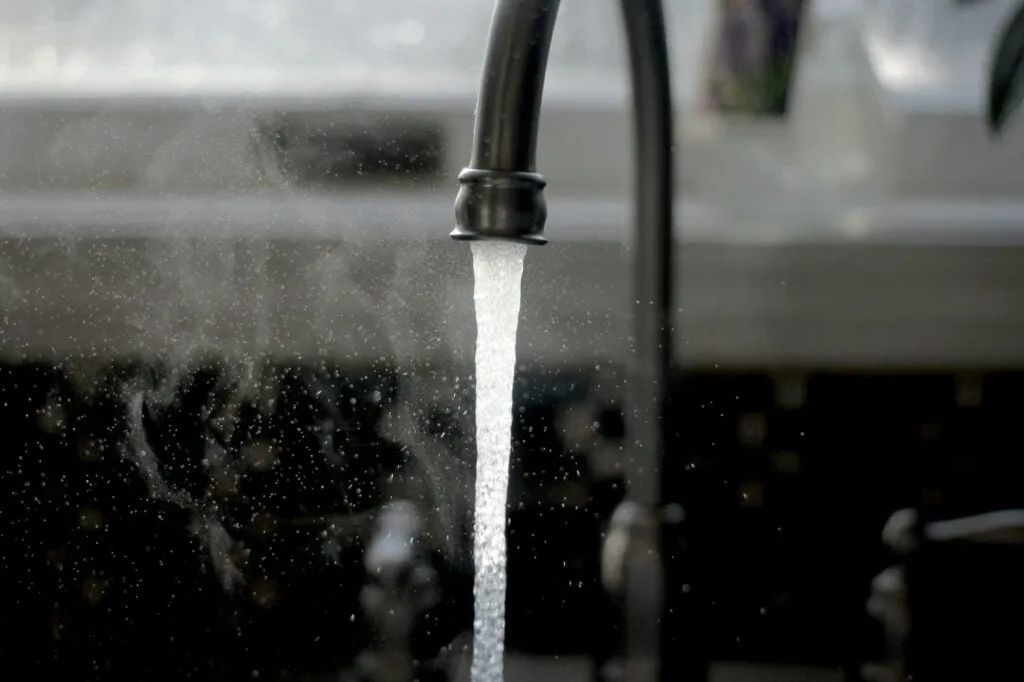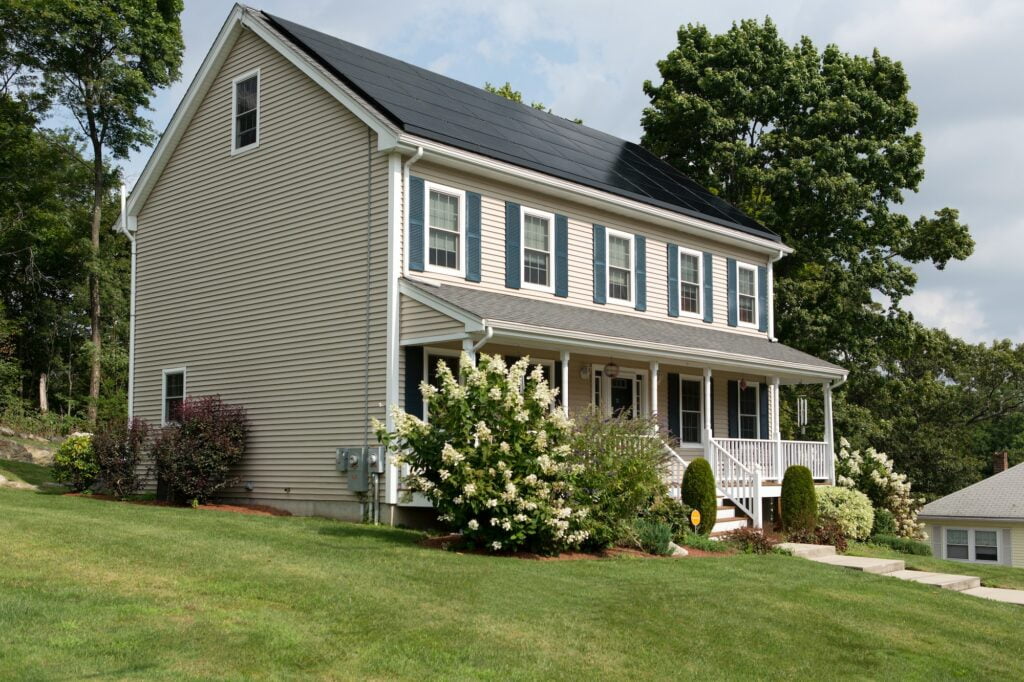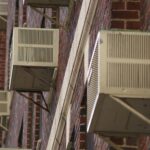Energy efficiency is a crucial aspect of sustainable living, and one of the easiest ways to make your home more energy-efficient is by conducting a home energy audit. While professional energy audits are comprehensive and provide detailed recommendations, a DIY home energy audit is a good starting point for homeowners looking to save energy and money. In this guide, we will walk you through the steps to conduct a DIY home energy audit and identify areas for improvement.

What is a Home Energy Audit?
A home energy audit comprehensively assesses a residential property’s energy consumption, efficiency, and overall performance. The primary goal of an energy audit is to identify areas where energy is being wasted or used inefficiently and recommend actionable steps to improve energy efficiency. By conducting a home energy audit, homeowners can gain valuable insights into their home’s energy usage patterns, discover opportunities for energy savings, and ultimately reduce their energy bills and carbon footprint.
A professional home energy auditor thoroughly inspects the property, examining various components, such as insulation, heating and cooling systems, windows, doors, and appliances. However, homeowners can also conduct a DIY home energy audit to identify problem areas and implement energy-saving measures. A successful home energy audit can lead to significant savings, improved comfort, and a more eco-friendly environment.
Before You Begin
- Gather information: Before starting your DIY home energy audit, gather your utility bills from the past year. This will help you understand your home’s average energy consumption and identify any seasonal trends or unusual spikes in usage. Having this information will be useful when assessing potential areas for improvement.
- Make a checklist: Create a comprehensive checklist of areas to inspect and items to evaluate during the audit. This will ensure you don’t miss any crucial components and can systematically assess your home’s energy efficiency.
- Equip yourself: Obtain the necessary tools and equipment to conduct the audit. Common tools include a flashlight, tape measure, thermometer, notepad, and camera or smartphone to document findings.
- Allocate time: Set aside sufficient time to perform the energy audit. Depending on the size of your home, this process can take a few hours to a full day. Conducting the audit when you have ample time will ensure a thorough inspection.
- Research energy-saving solutions: Familiarize yourself with common energy efficiency improvements and their potential benefits. This knowledge will help you identify potential upgrades during the audit and prioritize the most impactful changes.
- Enlist help: If possible, involve family members or friends. Multiple people can make the audit more efficient and provide additional perspectives on potential energy-saving opportunities.
By preparing yourself with the necessary information, tools, and resources before starting your DIY home energy audit, you’ll be well-equipped to identify and address energy inefficiencies.
With all this in mind, let’s discuss what you should look for during a DIY home energy audit.
Check for Drafts and Air Leaks
Air leakage is one of the primary sources of energy waste in a home. Inspect your home for drafts and air leaks around windows, doors, electrical outlets, and other openings. Hold a lit incense stick or lightweight tissue paper near the suspected area on a windy day to check for drafts. If the smoke or paper moves, you have found a leak. Seal gaps around windows and doors with weatherstripping or caulk to prevent drafts and improve your home’s energy efficiency.

Inspect Insulation
Proper insulation is essential for maintaining a comfortable indoor temperature and reducing energy consumption. Check the insulation in your attic, walls, and basement to ensure it is adequate and in good condition. Insulation should be evenly distributed and without gaps or compression. If you find areas with insufficient insulation, consider adding more to reduce heat loss in the winter and heat gain in the summer.
Evaluate Your Heating and Cooling Systems
Heating and cooling systems account for a significant portion of a home’s energy consumption. Inspect your furnace, air conditioner, and ductwork for any signs of wear, damage, or inefficiency. Change your air filters regularly, and consider upgrading to a more energy-efficient heating and cooling system if your current system is outdated or inefficient.
Examine Your Lighting
Lighting is another significant contributor to a home’s energy use. Walk through your home and evaluate the types of light bulbs you are using. Replace incandescent bulbs with energy-efficient LED or CFL bulbs, which consume less energy and last longer. Additionally, consider installing dimmer switches, motion sensors, or timers to further reduce energy consumption.
Assess Your Appliances
Older appliances are often less energy-efficient than their modern counterparts. Examine the age and efficiency of your refrigerator, dishwasher, washing machine, and other appliances. If they are over ten years old, consider replacing them with ENERGY STAR-rated appliances, which meet strict energy efficiency guidelines set by the U.S. Environmental Protection Agency.
Analyze Your Water Usage

Water conservation is an essential aspect of green living. Check your home for any leaking faucets or toilets, and repair them promptly. Install low-flow showerheads and faucet aerators to reduce water consumption. Consider upgrading to a more water-efficient washing machine or dishwasher as well.
Monitor Your Energy Consumption
Track your energy consumption over time to better understand your home’s usage. You can use your monthly utility bills or invest in a home energy monitor to provide real-time data on your energy consumption. Analyzing this information can help you identify trends and opportunities for further improvements.
Check Your Home’s Ventilation System
Proper ventilation is essential for maintaining indoor air quality and preventing moisture-related issues like mold and mildew growth. Inspect your home’s ventilation system, including exhaust fans in bathrooms and kitchens, and ensure they are clean and functioning correctly. Make sure vents are not blocked by dust, debris, or furniture. Additionally, consider installing an energy recovery ventilator (ERV) or a heat recovery ventilator (HRV) to improve indoor air quality while conserving energy.
Inspect Your Home’s Exterior

The exterior of your home plays a significant role in its energy efficiency. Check for any cracks, gaps, or damage in your home’s siding or foundation that could lead to air leaks or heat loss. Repair any issues you find to improve your home’s insulation and reduce energy consumption. Additionally, consider adding shade trees or installing awnings to block direct sunlight and reduce heat gain in the summer months.
Assess Your Home’s Landscaping
Landscaping can impact your home’s energy efficiency and comfort. Properly placed shade trees can help reduce cooling costs by blocking direct sunlight, while windbreaks, such as shrubs or hedges, can help reduce heating costs by blocking cold winter winds. Assess your home’s landscaping and consider making changes to improve your home’s energy efficiency and comfort.
A DIY home energy audit is valuable for homeowners looking to save energy and money. By identifying areas of energy waste and making improvements, you can create a more comfortable, efficient, and eco-friendly living space. Remember, a DIY audit is just the beginning – for a more comprehensive analysis and tailored recommendations, consider scheduling a professional home energy audit.





